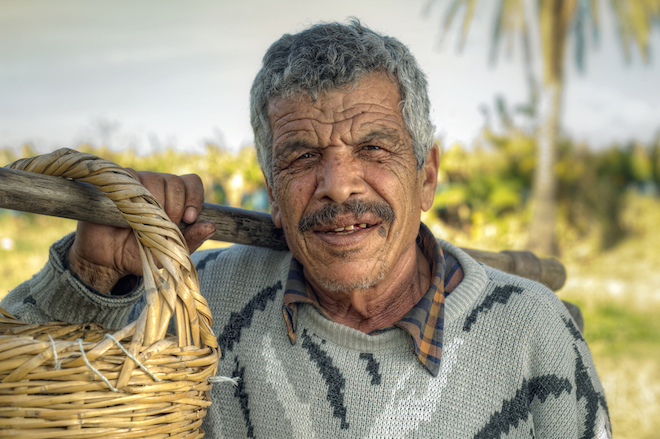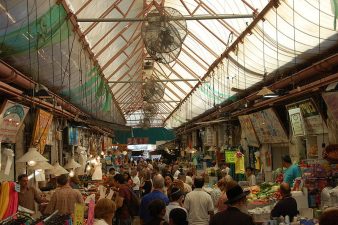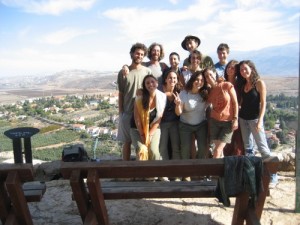 Organic farming is widely thought to be the healthy choice – not only nutritionally but because organic farmers are required (in general) to keep their crops chemical- and pesticide-free. But in poverty-stricken Gaza, people are more frequently buying conventionally-grown foods.
Organic farming is widely thought to be the healthy choice – not only nutritionally but because organic farmers are required (in general) to keep their crops chemical- and pesticide-free. But in poverty-stricken Gaza, people are more frequently buying conventionally-grown foods.
NPR recently visited The Good Earth organic produce stand in Gaza City, where the attending clerk Rami al-Waffer explains that people pay no attention to the signs and charts detailing the benefits of organic foods.
The first thing they see is the price, which typically runs about 25 percent higher than foods that are grown using a whole cocktail of potentially toxic chemicals.
This store purchases its produce from an organic farm in southern Gaza that is run by the Palestinian Center for Organic Agriculture. This eight acre farm is on land previously run by Israeli farmers, and produces most of the organic produce in Gaza.
Related: Organic farming boom in Gaza
In the good old days, Gaza farmers could sell produce to their Israeli neighbors, but that practice is now forbidden so the farmers have to look within to sell their goods. Very often they end up having to sell their crops at lower prices in amongst standard foods at public markets – otherwise they would go to waste.
But perhaps there will eventually be a shift. Even if customers can’t see past the price, and who can blame them given that without work and the Israeli blockade so many families are desperately poor, farmers are beginning to recognize that it can be cheaper to farm using organic methods.
Samir al-Shaer, an agronomist who heads the farm, told NPR that there are about 30 farmers working with him.
“When they plant organic, they’ll tell people about it,” says Shaer. “Some farmers are first interested because they can’t afford the chemical fertilizers. They didn’t realize the other benefits.”
Instead of using chemicals, they have double doors on the greenhouse to keep out pests, and they shake tomatoes to pollinate them in lieu of bees. But traders “don’t care” Shaer tells NPR.
“It’s all cucumbers, they say.”
Image of Arab farmer | Shutterstock



